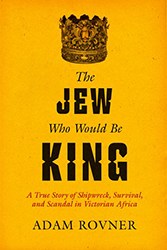When people talk about Bloomsbury, they think of Virginia and Leonard Woolf; when they talk about D.H. Lawrence, they think of his wife, Frieda, or maybe Katherine Mansfield or John Middleton Murry. Does anyone even mention Samuel Koteliansky (1880−1955)? But “Kot,” as Leonard Woolf called him, was a key figure, an intimate, in both of these literary circles.
A Russian Jew who left Kiev in 1911 to escape the blood libel pogroms, Kot settled in London, and rarely left his own home, much less the city. Fortunately, the British were in love with all things Russian at the time, so Kot could eke out a living translating Russian literature, especially for the Woolfs’ Hogarth Press.
Kot was a man of contradictions: a lifelong loner with a series of intense friendships, a meticulous wordsmith who wrote relatively few works of his own, a Jew who surrounded himself with people who thought nothing of dropping the occasional anti-Semitic remark. Rather than interpret her subject’s choices, Diment simply lays them out for readers, to make of them what they will. If Frieda Lawrence’s casual slurs about Jews, or Virginia Woolf’s nasty remarks about her own husband’s ancestry seem startling at first, after a while, the reader, like Kot himself, begins to learn to ignore the comments. While it may seem odd to write the biography of such an intensely private man, the quirkiness of Kot, plus the catty intimacy of Bloomsbury, add up to a surprisingly engaging read.
Bettina Berch, author of the recent biography, From Hester Street to Hollywood: The Life and Work of Anzia Yezierska, teaches part-time at the Borough of Manhattan Community College.




